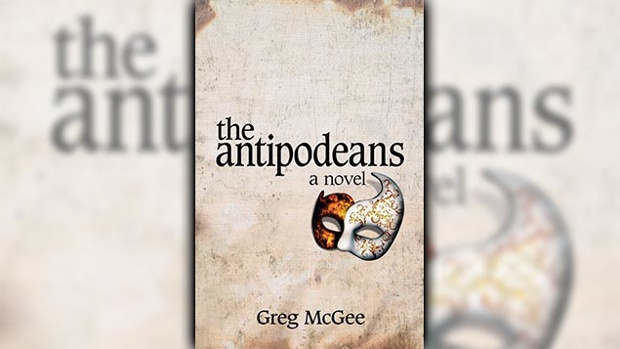Stephanie Jones: Book Review - The Antipodeans by Greg McGee
- Publish Date
- Friday, 31 July 2015, 12:39PM

- Author
- By Stephanie Jones
Kiwis prowl the perimeters of familiar domains in Greg McGee’s The Antipodeans, an ambitious, sprawling jigsaw puzzle of a novel that pieces together three generations of New Zealand and Italian families between 1940s Europe and the present day. The mass of characters is great enough to demand a family tree by way of prologue; the absence of a guide is explained in the final chapters of the novel, when a mystery that dominates the lives of several survivors is brought into final, sharp relief.
If The Antipodeans has a hero in the traditional sense, he’s Joe Lamont, who is spared a life down the Ngapara coal mine, which he first enters at 13, when he is introduced to the European theatre of war not many years later. As the novel opens he is a fresh survivor of the August 1942 British torpedoing of the Nino Bixio, an Italian ship bearing nearly 3,000 POWs captured in North Africa. A contrasting figure of antipodean masculinity is Joe’s friend and comrade Harry Spence, a complicated alpha male whose charisma gives way to callous violence as the weight of war and love’s lost labours take their toll down the years.
So many stories under one umbrella, and the rejection of the conventional narrative form of the war novel, risks general formlessness; McGee combats this with some structural cleverness, notably the perspective of a key character, Bruce Spence, given through a series of diary entries recorded during Bruce’s stint as the coach of an Italian rugby team in the 1970s. Bruce’s daughter Claire has brought her ailing father back to Italy for a reunion and to escape her own marital catastrophe, which has its roots, all too plausibly, in trickery in the Auckland real estate market.
It is through Bruce’s eyes that we see a very different Harry Spence than the man first encountered by Joe on a provincial North Island rugby pitch and who later evades death in a hospital in Bari. Harry in middle age, in middle New Zealand, is “a man who said virtually nothing, who had no friends that I knew of, who seemed locked into himself.” Earlier, as a combatant in the Italian Resistance alongside his Kiwi mates, he rises to the top by unspoken accord, his calm confidence being an undeniable trait of leadership.
The odd element jars a little, chiefly a snapshot of Joe in Freeman’s Bay amid the chaos of workers’ unrest and industrial sabotage of 1951 – but the rationale for this interlude later becomes clear, and in any case it vindicates the post-traumatic stress of veterans who must have been convinced that the madness had followed them home. As a portrait of war’s pendulum-swing between banality, discomfort and horror, The Antipodeans is bracing.
McGee, best known for the seminal play Foreskin’s Lament and more recently for the pseudonymous Alix Bosco novel Cut & Run, which won the inaugural Ngaio Marsh Award for crime fiction, has with The Antipodeans realized an ambition harboured for 30 years. Here he venerates history, honours war’s actors while declining to absolve them, and acknowledges, at sharp turns, “the petty fornications and sick commerce of human beings” without giving way to cynicism.
Take your Radio, Podcasts and Music with you

